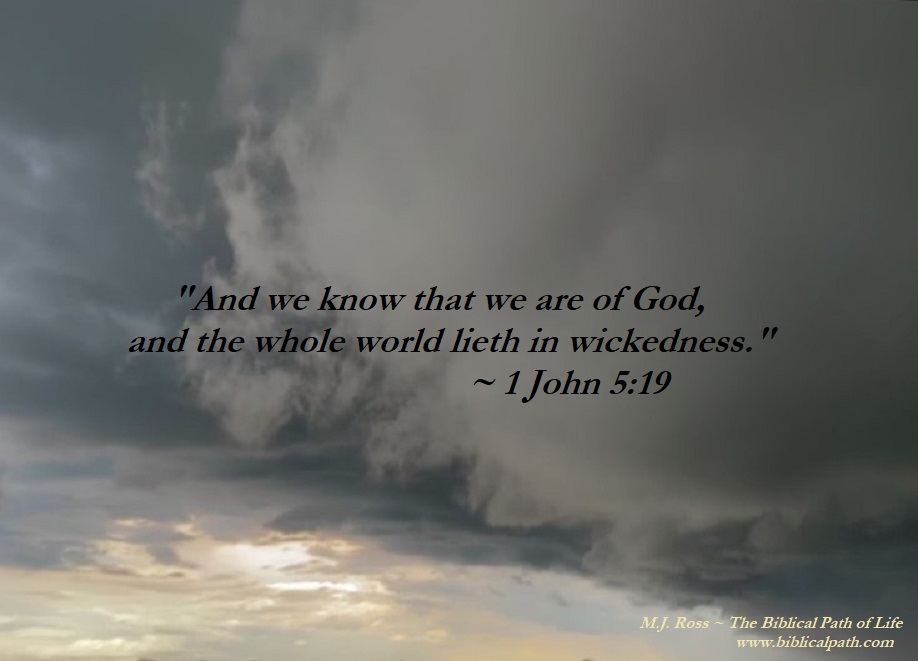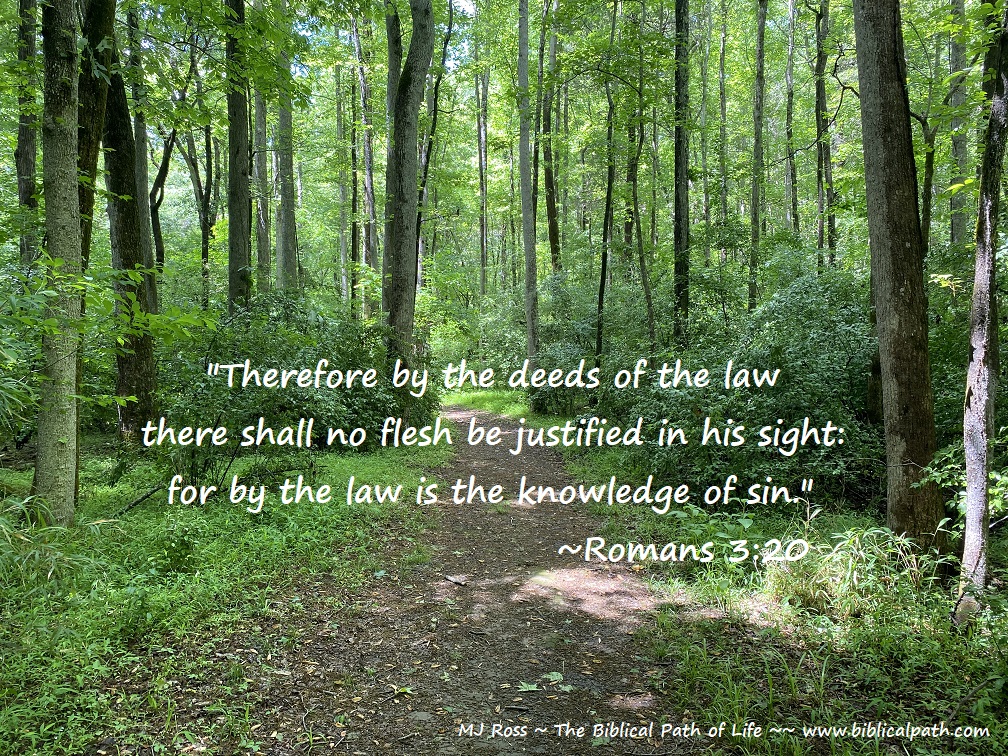
“And we know that we are of God, and the whole world lieth in wickedness.”
1 John 5:19
What is The Problem in the world today?
Sin. “And we know that we are of God, and the whole world lieth in wickedness” (1 John 5:19). Those who belong to Jesus live in a world that lies in wickedness. Recognizing this, Christians are to warn those who do not know Jesus, while understanding that we are not to be a part of this world.
One must remember that God created man without sin. However, since sin entered into the world (when Adam sinned in the garden), all people have sinned and fallen short. “For all have sinned, and come short of the glory of God” (Romans 3:23).
Once we hear the problem, we often quit with that verse. However, the verses immediately following give the solution to this problem. “Being justified freely by his grace through the redemption that is in Christ Jesus” (Romans 3:24). One can be justified freely because Jesus came to take the penalty of that sin. Justified means “to render (that is, show or regard as) just or innocent: be righteous.” Who can be regarded as just or innocent? Any one who will just believe in Jesus.
How and why is this possible? “25. Whom God hath set forth to be a propitiation through faith in his blood, to declare his righteousness for the remission of sins that are past, through the forbearance of God; 26. To declare, I say, at this time his righteousness: that he might be just, and the justifier of him which believeth in Jesus” (Romans 3:25-26). God sent His only Son, Jesus (remember John 3:16) to be a propitiation. Propitiation means “a place of conciliation, expiation, what the ancients called altar or place of sacrifice. It does not refer to the expiatory sacrifices themselves. Jesus Christ is designated not only as the place where the sinner deposits his sin, but He Himself is the means of expiation (expiation means ‘the act of making amends or reparation for guilt or wrongdoing: i.e. sin; atonement’)…” This is explained well in the following verse. “For he hath made him to be sin for us, who knew no sin; that we might be made the righteousness of God in him” (2 Corinthians 5:21). Jesus, who never sinned, took man’s sin, so that whoever trusts in this act (the expiation) can be made righteous.
Notice: It is a choice – to accept this gift or reject it. Do you remember what the Bible declares is the penalty for sin? “For the wages of sin is death …” (Romans 6:23). However, notice that there is an offering of eternal life. “… but the gift of God is eternal life through Jesus Christ our Lord” (Romans 6:23). This eternal life can only be obtained because of Jesus’ death on the cross for sin. Jesus paid the penalty for anyone who would just believe upon Him. The Bible is full of verses declaring that Jesus is the only Way. And if these few verses were the only ones that declared this truth, they would be enough.
Nevertheless, many choose to remain in that sin, refusing to believe what Jesus did for them. What happens to them? Jesus said, “I said therefore unto you, that ye shall die in your sins: for if ye believe not that I am he, ye shall die in your sins” (John 8:24). He also said, “He that believeth and is baptized shall be saved; but he that believeth not shall be damned” (Mark 16:16). Damned means “to judge against, that is, sentenced: condemned.”
For those who choose to trust in Jesus’ expiation by His death, has everlasting life. “He that believeth on the Son hath everlasting life: and he that believeth not the Son shall not see life; but the wrath of God abideth on him” (John 3:36). On the converse, those who reject Jesus will have the wrath of God upon them – forever.
It is as simple as this: “11. And this is the record, that God hath given to us eternal life, and this life is in his Son. 12. He that hath the Son hath life; and he that hath not the Son of God hath not life” (1 John 5:11-12). If you have Jesus, you have life. If you choose to reject Jesus, you will not have life (having been judged, condemned to eternal death). “But the fearful, and unbelieving, and the abominable, and murderers, and whoremongers, and sorcerers, and idolaters, and all liars, shall have their part in the lake which burneth with fire and brimstone: which is the second death” (Revelation 21:8). It only takes unbelief to spend eternity in the “lake which burneth with fire and brimstone: which is the second death”.
Have you chosen to believe, and then to warn any other unbelievers of the second death?
Watch the following five-minute video, and then share it with someone: https://www.youtube.com/watch?v=ANvaqeBVELc


